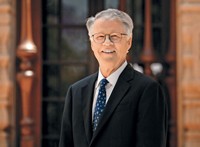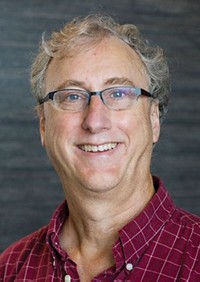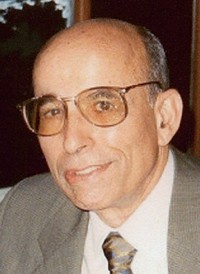Advertisement
Grab your lab coat. Let's get started
Welcome!
Welcome!
Create an account below to get 6 C&EN articles per month, receive newsletters and more - all free.
It seems this is your first time logging in online. Please enter the following information to continue.
As an ACS member you automatically get access to this site. All we need is few more details to create your reading experience.
Not you? Sign in with a different account.
Not you? Sign in with a different account.
ERROR 1
ERROR 1
ERROR 2
ERROR 2
ERROR 2
ERROR 2
ERROR 2
Password and Confirm password must match.
If you have an ACS member number, please enter it here so we can link this account to your membership. (optional)
ERROR 2
ACS values your privacy. By submitting your information, you are gaining access to C&EN and subscribing to our weekly newsletter. We use the information you provide to make your reading experience better, and we will never sell your data to third party members.
People
Ronald Breslow Award For Achievement In Biomimetic Chemistry
by Linda Wang
February 17, 2014
| A version of this story appeared in
Volume 92, Issue 7
Sponsored by the Ronald Breslow Award Endowment
Sam Gellman, 54, believes that the only limit to one’s accomplishments in chemistry research is one’s own imagination. And this belief has led him to make groundbreaking discoveries in nonnatural peptides and protein folding.
“I’m always drawn to situations in which, ultimately, the challenge is to allow your imagination to be as uninhibited as possible,” says Gellman, the Ralph F. Hirschmann Professor of Chemistry at the University of Wisconsin, Madison.
Gellman is best known for his pioneering studies of foldamers, a term he coined to describe unnatural oligomers that mimic natural peptides or proteins. Such molecules may be used, for example, to disrupt or augment protein-protein interactions or to catalyze reactions.
“This work emerged from an effort to extend beyond nature’s folding polymers, proteins, and RNA, to unnatural systems that might have comparable conformational behavior but would give us a parallel universe of structures, and maybe ultimately functions, to study,” Gellman says.
Gellman “is one of the most creative and accomplished scientists working in the area of macromolecular design,” says William F. DeGrado, a professor of pharmaceutical chemistry at the University of California, San Francisco. “His work on protein design is outstanding, and his work on foldamers has blazed a trail for many to follow.”
Gellman has always been interested in the intersection of chemistry and biology. In fact, he initially planned to major in biochemistry in college. “I was interested in many scientific topics, especially in the diverse and fascinating subjects associated with living things. As I began to learn about the chemical level of biology, I realized that the molecules created by evolution were especially intriguing,” he says. “I gravitated to chemistry to be able to create things that hadn’t existed before.”
Find news of new hires, promotions, retirements, and other job changes at http://cenm.ag/promo0217.
Gellman’s recent work has brought him back toward biology. “I am very interested in the way cells and organisms interact with new molecules we create,” Gellman says. “Not only are our foldamers inspired by biology, but also they can be used to modulate biological systems.”
Gellman earned an A.B. in chemistry from Harvard University in 1981. He joined Ronald Breslow’s lab at Columbia University and earned a Ph.D. in chemistry in 1986.
He went on to complete a postdoc in Peter Dervan’s lab at California Institute of Technology; in 1987, he joined the faculty at the University of Wisconsin, Madison, as an assistant professor.
This isn’t Gellman’s first ACS national award. He received the Ralph F. Hirschmann Award in Peptide Chemistry in 2007. In 1997, he was named an ACS Arthur C. Cope Scholar.
His work continues to inspire that of others, including DeGrado. “Sam’s synthetic approach to understanding the molecular basis for stabilization of β-turns, sheet formation, and protein folding is remarkably creative and insightful,” DeGrado says. “He truly embodies the spirit recognized in this award.”
Gellman will present his award address before the Division of Organic Chemistry.






Join the conversation
Contact the reporter
Submit a Letter to the Editor for publication
Engage with us on Twitter